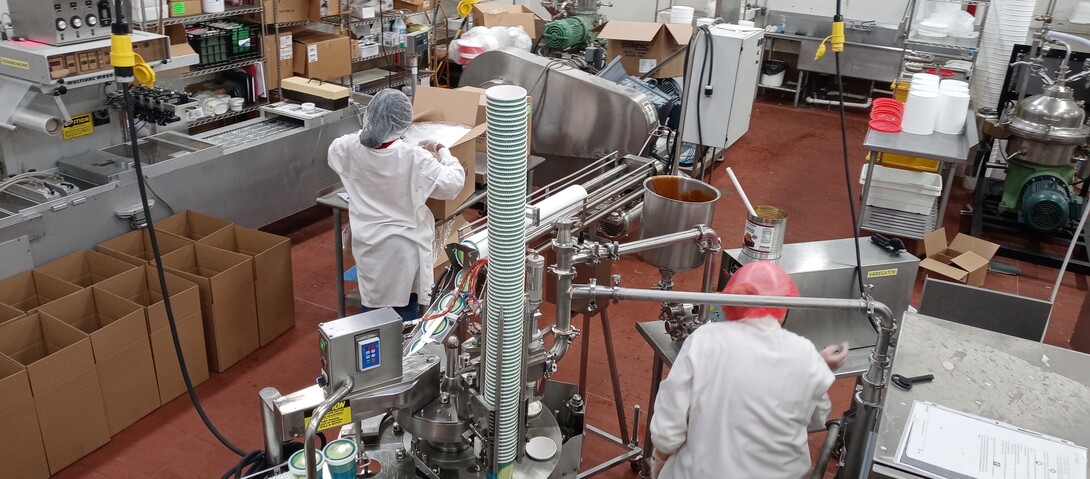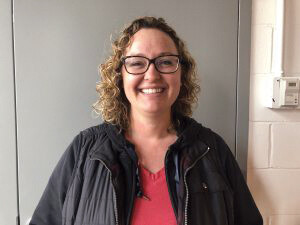
A homemade ice cream company from Texas found their way to the University of Nebraska–Lincoln’s Innovation Campus, through the Food Processing Center’s small-batch co-packing specialty and recently-acquired safe quality food certification.
The Food Processing Center houses a co-packing operation for companies who don’t have their own facilities or can’t keep up with production. Clients will send their ingredients, mix and packaging and the center runs their product for a tolling fee. While the center can take on larger clients, their sweet spot is with smaller orders that larger co-packing facilities typically wouldn’t take on.
“Our specialty is starting with very small batches,” said Josie Houston, manager of the Food Processing Center’s Dairy Plant. “Most co-packers work with larger batches. I talked to an ice cream co-packer and their minimum order is a 3,000-gallon order of mix of one single flavor. We typically don’t even make that in one run across seven flavors.”
For instance, the Texas company was making ice cream in-store but couldn’t handle the volume needed to expand to online sales and grocery stores. They sought outside help, but most co-packing facilities wouldn’t take their smaller 100-gallon operation. This is where the Food Processing Center stepped in.
“They came to us with their recipes in cups and teaspoons, and we converted everything to milliliters and pounds,” Houston said. “When you scale up you don’t need to use as much vanilla or cocoa for example, so we did some development work as well.”
Through the center’s SQF certification, companies like this one can offer their products to more retailers.
“The company is starting to get into some of the larger local retailers that want them to have that food safety certification,” said Sami Fischer, food safety expert at the Food Processing Center. “It helps them to say that their products were made in an SQF facility. It’s like a backing that they’re selling safe, quality products.”
The Food Processing Center obtained SQF certifications for cheese and ice cream in March 2021, after a co-packing client needed it for their operation. It now serves as an extra benefit for those who co-pack with the university, and even attracts companies who choose the Food Processing Center because of its certification. This allows clients to offer their products through more companies, such as Walmart, which requires products to be SQF certified before beginning the pitch process.
The SQF (Safe Quality Food) certification is offered by the SQF Institute and is a GFSI (Global Food Safety Initiative) benchmarked auditing scheme. It was established to create a leading, global certification for food safety.
“The FDA and USDA do a lot of things to regulate safety in our food supply, but they have to make regulations that fit the largest and smallest manufacturers in the United States,” Fischer said. “This goes a step above and sets a standard for all countries.”
While the SQF certification attracts and supports clients, earning and maintaining the certification is no small feat.
“We do a risk analysis for every ingredient and every step in the process,” Houston said. “We have to have a flow chart of every step in the process and assess the risk of an ingredient being frauded or containing any hazards or allergens. There’s a lot of paperwork and record keeping.”
A trained practitioner must be on-site, and the training costs hundreds of dollars. The process requires a lot of high-level food safety program writing, making it harder for smaller manufacturers to set up. By having the certification, the Food Processing Center takes that burden off of companies who work with them.
By offering the co-packing option and the SQF certification, the Food Processing Center contributes to major milestones in a company’s growth and will continue to do so for years to come.








